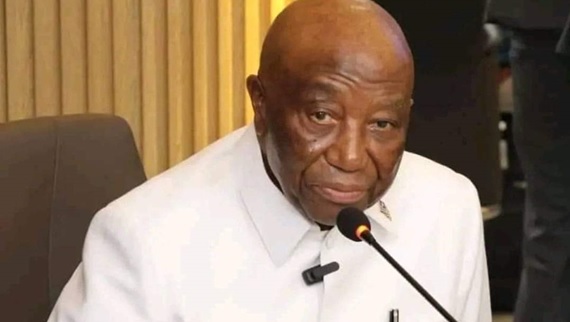MONROVIA, FRIDAY, OCTOBER 11, 2024 – Former Minister of Commerce Amin Modad resigned after public backlash over the purchase of a luxurious 2024 Chevy Suburban, valued at over US$100,000, at a time of economic hardship in Liberia. The resignation, tendered on October 9, followed intense criticism, with citizens and civil society groups condemning the decision as reflective of poor judgment and government excess.
In a press statement accepting Modad’s resignation, President Joseph Nyuma Boakai acknowledged that the vehicle purchase displayed “poor judgment and a lack of sensitivity to the current economic environment.” The President ordered that the vehicle be transferred to the General Services Agency (GSA) for official government use in hosting VIP guests, reaffirming his administration’s commitment to transparency and accountability.
Modad, who served as Commerce Minister for nine months, defended his actions in his resignation letter, stating that no malfeasance occurred during the procurement process. However, he expressed concern that the controversy had become a distraction from the administration’s broader national agenda. “Though I have provided all documentation that demonstrates no wrongdoing, the ongoing public discourse affects my integrity and the administration’s work. I therefore tender my resignation to allow focus on more pressing national issues,” Modad wrote.
The controversy surrounding the vehicle’s purchase gained significant attention after prominent activist Martin Kollie lambasted the expense in a public statement titled “The Cartel Continues – This is NOT Rescue.” Kollie criticized the purchase as a glaring symbol of excess, highlighting that while public officials indulge in luxury, civil servants earn a mere US$150 per month. “Just the vehicle of Commerce Minister Amin Modad alone could pay 10,083 civil servants for a month,” Kollie remarked, emphasizing the glaring disparity in wealth distribution.
Kollie further alleged that the funds used to buy the vehicle were tied to MedTech Scientific Limited, a Dubai-based company under investigation for defrauding Liberia. He questioned how Minister Modad could accept a vehicle funded through a MedTech-Liberia Revenue Authority (LRA) arrangement under the guise of “capacity building.” “This is not ‘capacity building’ – this is corruption,” Kollie asserted, calling for an independent investigation into the matter.
Civil society groups, including the Center for Transparency and Accountability in Liberia (CENTAL), joined the chorus of criticism. CENTAL’s Executive Director, Anderson D. Miamen, decried the expenditure, stating, “Why should a poor country like Liberia buy a vehicle of this kind for one public official? The government should be prioritizing the needs of its citizens, not indulging in unnecessary extravagance.”
Miamen also pointed to a larger pattern of wasteful spending by government officials while essential sectors like education, healthcare, and civil servant salaries remain severely underfunded. “We beg development partners and donors for almost everything, yet public officials indulge in excessive spending. Liberia’s story will change only when we engage in strategic and responsible governance,” Miamen concluded.
In response to the public scrutiny, the wife of former Commerce Minister Amin Modad, Madam Fredrica Modad, issued a statement on October 10 expressing support for her husband’s decision to step down. “My dear husband, your family stands by you for making a personal decision to resign. We know your intentions for Liberia are good; moreover, you have always been a professional person, the records are there. We have more to achieve in our businesses. Our dreams are possible because of how determined we are. Experience tells you what to do. Confidence allows you to do it without any regrets. My family name is at peace now,” she concluded.
The scandal surrounding the luxury vehicle purchase highlights the growing divide between Liberia’s public officials and its struggling population. As the Boakai administration deals with public anger over financial mismanagement, calls for greater transparency and accountability are growing louder, placing further pressure on the government to address corruption and restore trust.







